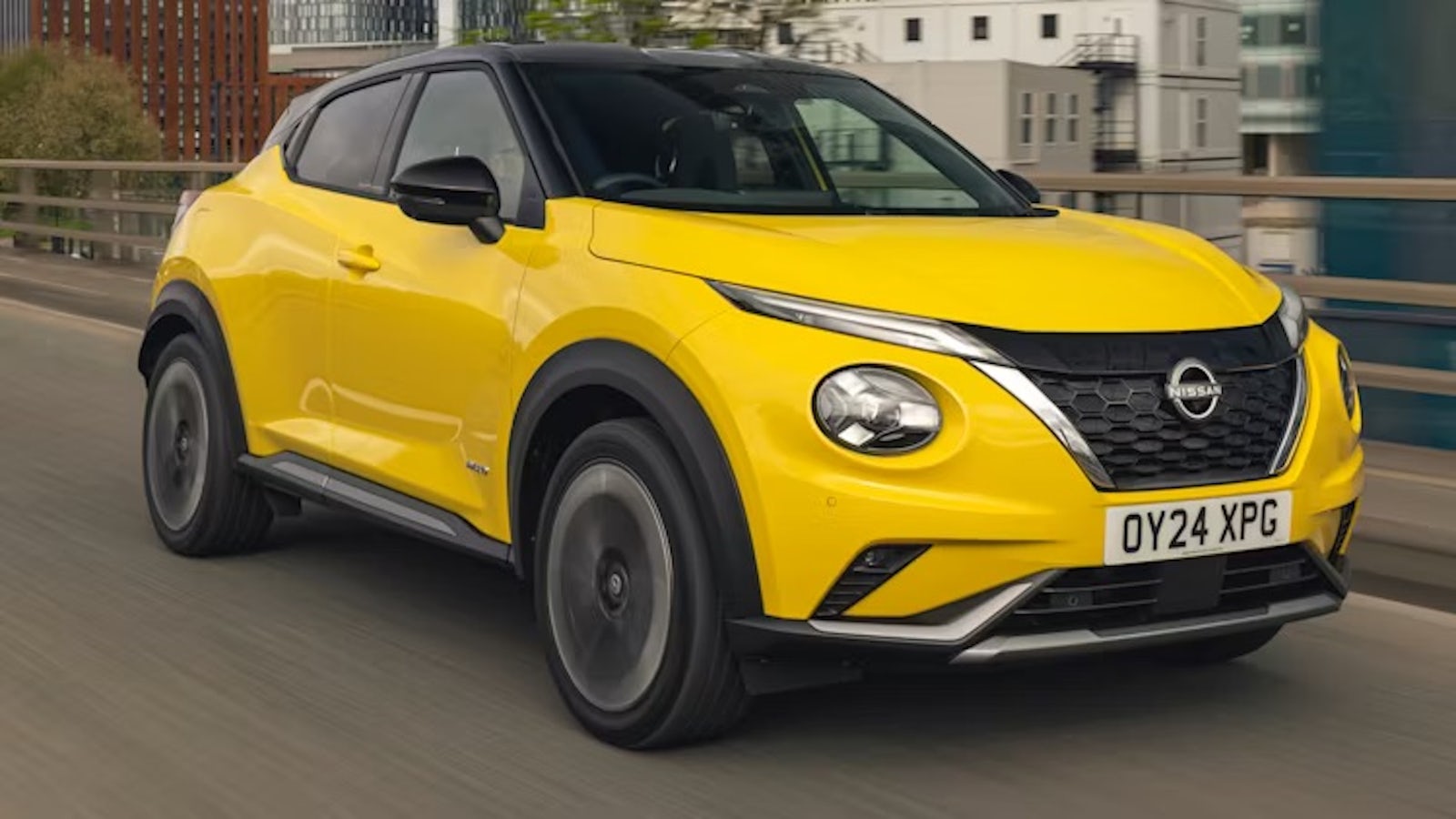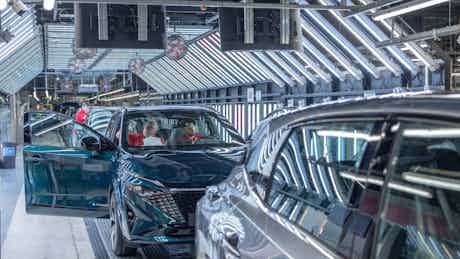Car changing is a big deal
Nissan’s Sunderland plant employees might be asked to take voluntary redundancy as the company looks to cut down its global workforce. Here’s what that could mean for customers and the future of the brand.
Nissan is starting talks this week with workers at its Sunderland plant about voluntary redundancy options as part of a bigger plan to make the company more efficient worldwide, according to news agency Reuters.
The Japanese car manufacturer wants to reduce its global workforce by about 15%. They haven’t said exactly how many jobs will be affected in Sunderland, but some reports say it could be around 250.
This move will help make the Sunderland plant leaner and more flexible, according to the company. They also stressed that the plant is still “super important” to their European operations and will keep making the next version of the Nissan Leaf.
While Nissan plans to close seven plants globally, Sunderland isn’t one of them.
On top of this, Nissan is asking some suppliers in the UK and Europe to delay payments for now, as they work to improve their cash flow.
Remember, you can buy a brand new or used car right here on Carwow. And you can also sell your car, too. We’re here to help you through every step of your car-changing journey.
What’s the story so far?
Amid falling global sales, rising costs, and failed merger talks, Nissan announced in May 2025 that it will cut 11,000 jobs worldwide and shut down seven factories as part of a broader cost-cutting plan.
Combined with cuts announced in November 2024, the total number of layoffs now stands at 20,000 – around 15% of its global workforce of 133,500. The company also plans to reduce its total number of manufacturing plants worldwide from 17 to 10 by the end of 2027.
About two-thirds of these job losses will affect manufacturing roles, while the remainder will impact sales, administrative staff, researchers, and contract workers.
The Sunderland plant currently employs around 6,000 people, and this latest announcement suggests that number will dwindle.
Sunderland’s uncertain future
Uncertainty surrounds the Sunderland site, with mixed signals – these job cut talks add to the uncertainty. Nissan CEO Ivan Espinosa confirmed more electric cars, like the new Leaf, will be built there, supporting the shift to electric. However, plans for a battery and EV factory in Japan were scrapped, and overall investment is being cut.
Once a cornerstone of Nissan’s UK presence with significant government backing, including a £100m UK contribution in 2021 toward a battery gigafactory with Chinese firm Envision, Sunderland’s future remains uncertain amid pending factory closures and possible job cuts.

Poor performance in key markets
The restructuring comes amid declining performance in major markets. Nissan has been hit particularly hard in China, where its sales dropped 12% last year due to fierce competition from local EV manufacturers such as BYD. In the US, another key market, heavy discounting, inflation, and high interest rates have all taken a toll.
Globally, the company reported a staggering annual loss of 670 billion yen (around £3.4bn). Adding to the pressure are tariffs introduced under US President Donald Trump, which imposed a 25% tax on cars and car parts imported into the US. However, UK-made cars benefit from a reduced 10% tariff under a bilateral agreement.
Leadership reshuffle and failed merger
Nissan’s corporate leadership has also undergone a shake-up. After a failed merger attempt with fellow Japanese carmakers Honda and Mitsubishi earlier this year, then-CEO Makoto Uchida stepped down. Ivan Espinosa, the company’s former chief planning officer and head of its motorsports division, has taken the helm.
The merger, had it succeeded, would have created the world’s fourth-largest carmaker with combined revenues exceeding $60bn (around £48bn). The collapse of these talks represented a major strategic setback, as the alliance was intended to strengthen the companies’ positions in increasingly competitive global markets.
The impact of layoffs on consumers
While Nissan’s restructuring is largely a business-focused decision, the widespread layoffs and plant closures are likely to have ripple effects on consumers. With plant closures and reduced production capacity in the wings, customers in the UK could face longer wait times and potential shortages of popular models such as the Juke and Qashqai.
As Nissan focuses more on electric cars, such as the Leaf and the Ariya, options for traditional combustion models may decrease. The company’s smaller production volume could also drive up prices, particularly for electric cars.
There’s also the question of brand loyalty. Job cuts in customer support may also lead to slower response times and reduced after-sales services. Meanwhile, ongoing layoffs and plant closures could undermine consumer confidence, making potential buyers wary of the brand’s stability.
These challenges could affect how people view Nissan and whether they choose to buy its cars, so the company will need to balance saving money with continuing to meet customer expectations.
What cars are built at the Sunderland plant?
Nissan’s Sunderland plant is the largest car manufacturing facility in the UK and produces three key Nissan models:
Nissan Qashqai

This is a compact SUV known for its practicality, comfort, and efficient engines. It’s one of the UK’s best-selling cars and popular with families. While this car has a practical, solid interior, boot space is a bit limited.
Nissan Juke

A small crossover SUV with bold styling and a sporty feel. It’s aimed at younger drivers looking for something compact but distinctive. While its looks stand out, the interior feels quite cramped.
Nissan Leaf

A fully electric hatchback that was one of the first mainstream EVs. It offers zero-emissions driving and is ideal for city commutes. Its E+ models have good range, but alternatives are roomier in the back.
Car change? Carwow!
Looking for a new set of wheels? With Carwow you can sell your car quickly and for a fair price – as well as find great offers on your next one. Whether you’re looking to buy a car brand new, are after something used or you want to explore car leasing options, Carwow is your one stop shop for new car deals.
Click here to follow us on WhatsApp, where you can keep up-to-date with all the latest news, reviews, advice guides and videos.
